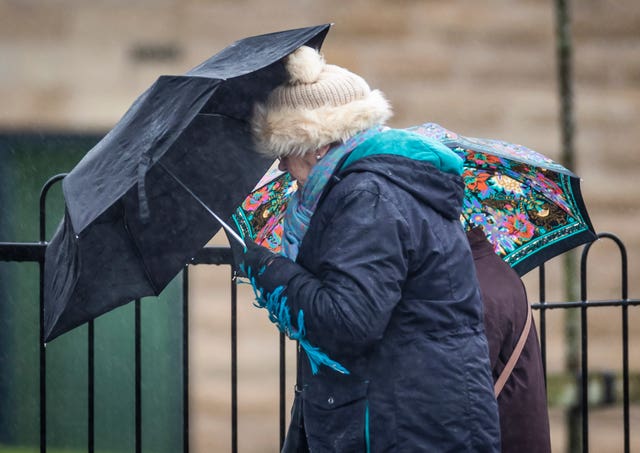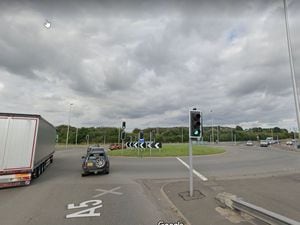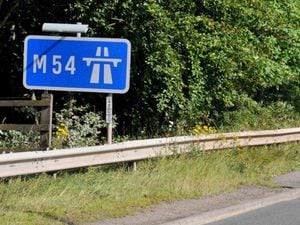Storm Ciara: Alert level raised to amber for region
An amber alert for wind has been issued for Shropshire and Wales, with Storm Ciara set to hit the country on Sunday

Rail users have been warned only to travel if absolutely necessary on Sunday and to allow extra time for their journeys.
Weather warnings have also been issued for parts of the UK on Saturday as Storm Ciara brings strong gales and heavy rain over the weekend.
Forecasters warned there could be delays and cancellations to air, ferry and train services, damage to buildings and a chance of power cuts caused by wild weather conditions.
West Midlands Railway today announced it was imposing a 50mph speed restriction across all networks on Sunday due to gusts of up to 80mph.
It said services would be reduced and urged passengers so leave extra time to complete journeys and to check the service before they travel at wmr.uk/plan
On Sunday, an amber warning of wind covers most of England and all of Wales from 8am to 9pm.
Other rail firms have also announced they will operate reduced timetables.
Network Rail and train operators in England issued an alert to passengers, which read: “Only travel by train this Sunday if absolutely necessary.”
MORE:
Strong winds have the potential to damage overhead electric wires and tracks due to debris or trees falling onto the railway.
Disruption could continue into Monday morning as repair work may be hampered by the conditions.
The following lines will not have a TfW service operating on Sunday:
Wales & Cross Borders
Heart of Wales
Cambrian Line (West of Shrewsbury)
Shrewsbury-Birmingham International (West Midlands Trains' hourly service still running).
Yellow warnings of wind have been issued by the Met Office for north-western parts of the UK on Saturday before the amber warnings come into force on Sunday.
Passengers are urged to check for updates before they travel.
Storm Ciara was named by the Met Office on Wednesday and is moving eastwards towards the UK and Ireland.
Met Office chief meteorologist Frank Saunders said: “Storm Ciara will bring damaging winds and heavy rain across the UK this weekend and we have issued a range of severe weather warnings giving people time to prepare for potential impacts of the storm.

“Winds will increase through Saturday across Northern Ireland, Scotland, northern England and Wales, before turning very windy across the rest of UK through the early hours of Sunday morning.
“Gusts of 50-60mph are expected quite widely across inland areas, with even stronger gusts of 80mph or higher along coastal areas, especially in south-east England and northern Scotland.”
Drivers are being warned to take extra care on the roads due to the potential of difficult conditions caused by heavy rain, particularly on coastal or exposed routes.
The Met office warned people what to expect:
Flying debris could lead to injuries or danger to life
Some damage to buildings, such as tiles blown from roofs expected
Longer journey times and cancellations, as road, rail, air and ferry services affected
Some roads and bridges closed
Power cuts with the potential to affect other services, such as mobile phone coverage
Injuries and danger to life from large waves and beach material being thrown onto sea fronts, coastal roads and properties.
Guy Addington, regional water safety lead at the RNLI, said: “This rough weather could making visiting our coasts around the UK and Ireland treacherous and bring very dangerous sea conditions.
“If you see someone else in danger in the water, call 999 and ask for the Coastguard. If you have something that floats that they can hold on to, throw it to them.
“Don’t go in the water yourself – too many people drown trying to save others.”





